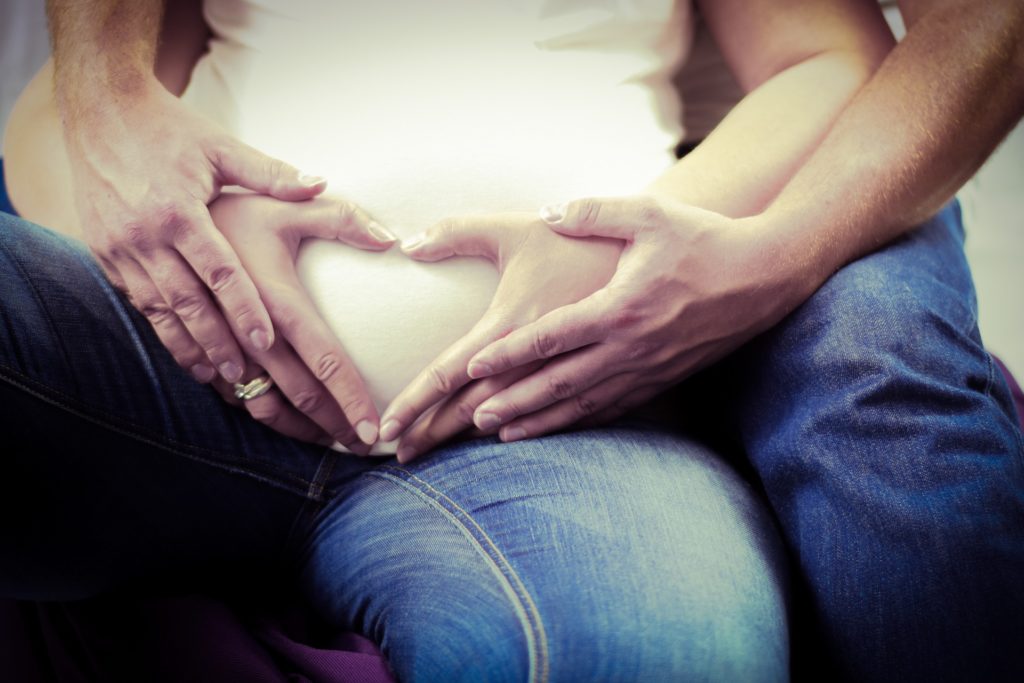- Calls to this hotline are currently being directed to Within Health, Fay or Eating Disorder Solutions
- Representatives are standing by 24/7 to help answer your questions
- All calls are confidential and HIPAA compliant
- There is no obligation or cost to call
- Eating Disorder Hope does not receive any commissions or fees dependent upon which provider you select
- Additional treatment providers are located on our directory or samhsa.gov
Pregnant: When Morning Sickness Triggers Eating Disorder Behaviors

Nausea and vomiting is one of the early signs of pregnancy that can begin around six weeks gestation. According to the American Pregnancy Association, more that 50 percent of women will experience morning sickness in their pregnancy, which is typically the result of increased hormones in the body as a result of conception [1]. Morning sickness can look different for every women, depending on her individual body.
Some women may only experience nausea for a few short weeks in their pregnancy, which may be manageable. Other women may experience extreme nausea and vomiting longer than the first trimester. Hyperemesis Gravidarum is the most extreme form of morning sickness, in which a woman may be unable to keep any food or liquids down. This condition will typically require medical intervention.
When Morning Sickness Triggers Eating Disorder Behaviors
Pregnancy is an exciting time in life that brings about many physical and emotional changes. Pregnancy during eating disorder recovery can also bring about many challenges, as the body changes and adapts to grow a baby. For a woman with a history of an eating disorder, the experience of morning sickness and vomiting can be especially triggering, as for many, it is a reminder of past abnormal behaviors, like bingeing and purging.
As a woman in recovery from an eating disorder, pregnancy can feel like a vulnerable time, as you learn to balance the care of yourself and your growing baby during a changing time. This is an important time to have the support of a treatment team, including your therapist and dietitian, in order to work through the potential triggers you are facing as you go through your pregnancy.
Maintaining Your Health During Pregnancy
 Working closely with your physician and treatment team to monitor the growth of your baby as well as your own health during your pregnancy. Be sure to disclose your past of an eating disorder with your OBGYN or midwife, in order that necessary precautions are taken. Some steps that can be taken to help you manage nausea may include the following:
Working closely with your physician and treatment team to monitor the growth of your baby as well as your own health during your pregnancy. Be sure to disclose your past of an eating disorder with your OBGYN or midwife, in order that necessary precautions are taken. Some steps that can be taken to help you manage nausea may include the following:
- Eat small, frequent meals throughout the day
- Eat foods that are appetizing and easier to tolerate
- Eat slower and while sitting down
- If cooking or certain smells make you nauseous, ask for assistance with preparing food
- Get rest and/or take naps during the day as you are able to help manage nausea
- Talk with your doctor about medications and herbs that might be helpful
While it may be difficult to manage what you are experiencing, you don’t have to go through this alone.
Reach out to professional help when you feel triggered by something you are experiencing during pregnancy, whether morning sickness or other side effects.
 About the Author: Crystal is a Masters-level Registered Dietitian Nutritionist (RDN) with a specialty focus in eating disorders, maternal/child health and wellness, and intuitive eating. Combining clinical experience with a love of social media and writing, Crystal serves as the Director of Content and Social Media for Eating Disorder Hope/Addiction Hope, where her passion to help others find recovery and healing is integrated into each part of her work.
About the Author: Crystal is a Masters-level Registered Dietitian Nutritionist (RDN) with a specialty focus in eating disorders, maternal/child health and wellness, and intuitive eating. Combining clinical experience with a love of social media and writing, Crystal serves as the Director of Content and Social Media for Eating Disorder Hope/Addiction Hope, where her passion to help others find recovery and healing is integrated into each part of her work.
As a Certified Intuitive Eating Counselor, Crystal has dedicated her career to helping others establish a healthy relationship with food and body through her work with EDH/AH and nutrition private practice.
References:
[1] American Pregnancy Association, http://americanpregnancy.org/pregnancy-health/morning-sickness-during-pregnancy/ Accessed 29 March 2017The opinions and views of our guest contributors are shared to provide a broad perspective of eating disorders. These are not necessarily the views of Eating Disorder Hope, but an effort to offer discussion of various issues by different concerned individuals.
We at Eating Disorder Hope understand that eating disorders result from a combination of environmental and genetic factors. If you or a loved one are suffering from an eating disorder, please know that there is hope for you, and seek immediate professional help.
Reviewed By: Jacquelyn Ekern, MS, LPC on April 2, 2017
Published on EatingDisorderHope.com

The EatingDisorderHope.com editorial team comprises experienced writers, editors, and medical reviewers specializing in eating disorders, treatment, and mental and behavioral health.

